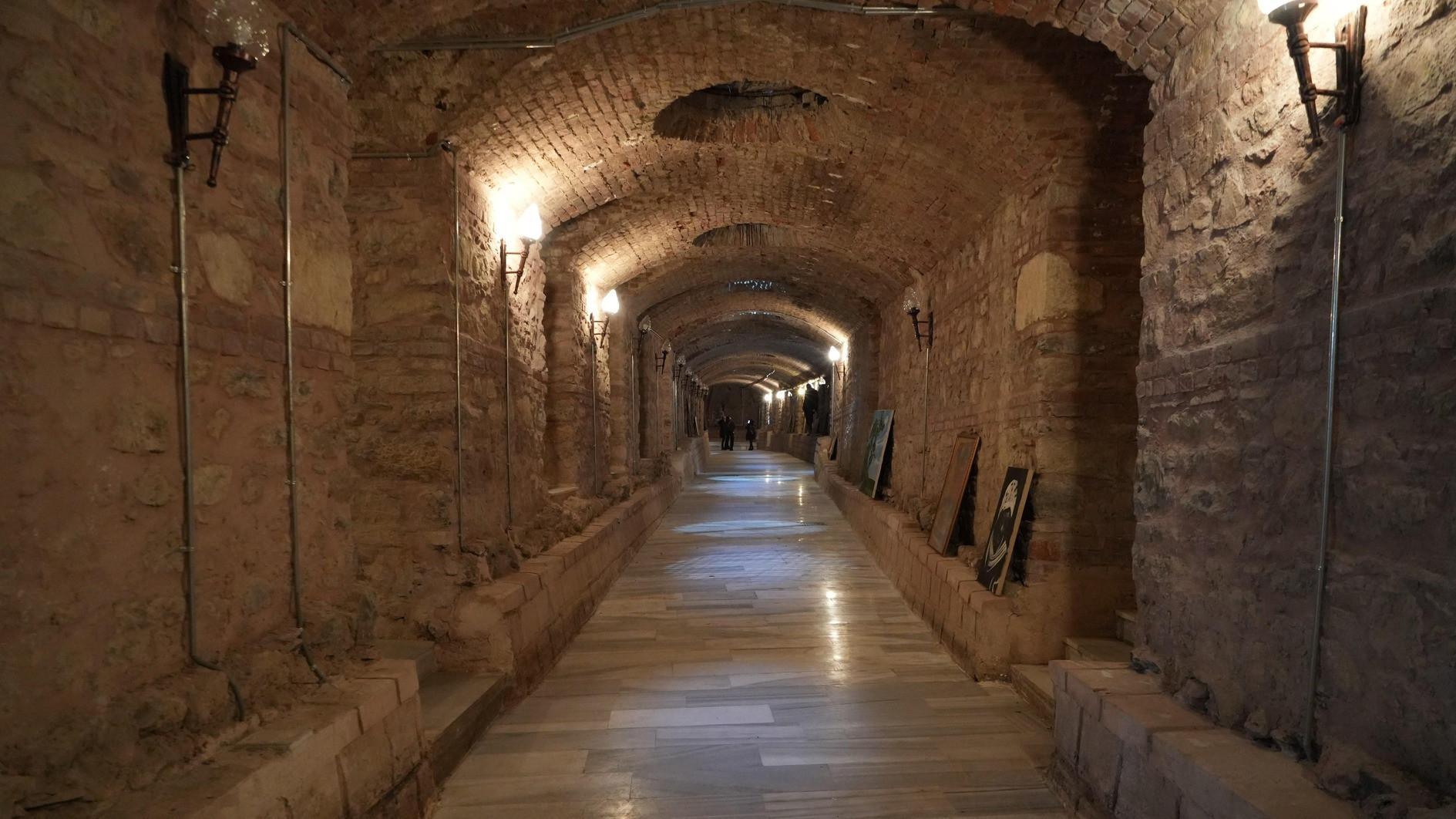
With restoration efforts now complete in the historic Rumeli Han, nestled on Istanbul’s iconic İstiklal Street, visitors are flocking to explore the mysterious tunnel that has come to light beneath its neoclassical facade.
Baki Coşkun, who oversaw the restoration of Rumeli Han, shared that plans are underway to utilize the tunnels for cultural and artistic endeavors befitting Beyoğlu’s vibrant atmosphere, creating the potential to attract even more visitors.
Rumeli Han was constructed in 1894 by Sarıcazade Ragıp Pasha, the "Baş Mabeyinci," which means the "Spokesperson of the Palace" in English, of Sultan Abdulhamid II.
Alongside its counterparts, Afrika Han and Anadolu Han, Rumeli Han is part of a trio of inns named after continents where the Ottoman Empire once held power.
Legends abound that these inns were interconnected by secret tunnels, enabling the elite to discreetly navigate between buildings.
During the extensive restoration efforts of Rumeli Han, which commenced in 2017, workers stumbled across a passageway while excavating to secure the foundation, hidden for decades beneath layers of debris and garbage.
Spanning 1,400 square meters, the tunnel boasted various rooms, fueling further speculation. Commenting on the alleged connection, Coşkun said, "We don’t know exactly how true or false it is."
While the tunnel’s origins remain a mystery, documents suggest it may have been used as a wood storage facility before Rumeli Han’s construction, according to Coşkun.
Shedding light on Rumeli Han’s significance, Coşkun noted, "It was a meeting point for artists and politicians, witnessing pivotal moments in Ottoman and Turkish history."
Registered as a protected antiquity by the Supreme Council of Monuments, dated July 14, 1978, Rumeli Han has an eclectic style on the main entrance door.
On the other hand, after the 1990s, theater and concert halls, artist workshops and cafes were opened in Rumeli Han, where baroque and empire decorations were used extensively.